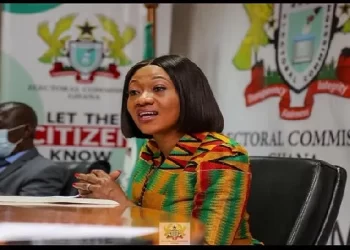Ghana per its operations in the maritime industry has favored the closed ship registry system since the post-independence era.
In view of this, the Black Star Line (BSL) was duly established to symbolize Ghana’s independence through international transportation modes.
The BSL strictly adhered to the closed registry system with substantial legislative support from the Merchant Shipping Act, 1963 (Act 183) as amended by N.L.C.D. 372 and P.N.D.C.L 248.
With the intent of imposing regulations governing Ghana’s marine activities in adherence to the globally accepted standards enacted by the International Labor Organization (ILO) and the International Maritime Organization (IMO), the Ghana Shipping Act, 2003 (Act 645) replaced the Merchant Shipping Act, 1963 (Act 183).
In a bid to liberalize and boost foreign investment in Ghana’s shipping industry, as the Ghana Shipping Act, 2003 (Act 645) allowed Ghanaians in joint venture relationship with foreign nationals in shipping, to register ships in Ghana, hitherto, the erstwhile Merchant Shipping Act, 1963 (Act 183) permitted only Ghanaian citizens and companies which align their operations under the Companies Code of Ghana.
The Ghana Maritime Authority, per its activities, is permitted to supervise the ships registry in accordance with Ghana’s Flag State obligations.
Peculiar amongst its mandate is to ensure that ships flying the Ghana flag are seaworthy and operate in accordance with regulations on safety, security and the protection and preservation of the marine environment.
However, surprisingly, the Centre for International Maritime Affairs, Ghana (CIMAG) can conclude that ship vessels plying through our coastal shores do not necessarily conform to any stringent safety protocols pertaining to design structures and equipment installations.
Hence, resulting in even far greater damages if local safety regulations are not proposed and/or adhered to.
Irrespective of the non-adherence to local safety regulations, many stakeholders in the maritime industry are calling on the Government of Ghana (GoG) to adopt the open registry, thus, prompting the need to hypothesize if the adoption of the open registry system will be economically and structurally advantageous than the current system in which we operate.
To analytically conclude on the aforementioned hypothesis, it is prudent to understand the open registry system to qualitatively assess the pros and cons of this system.
Although all merchant vessels that sail on the high seas are required to do so under a national flag, which symbolizes the legal jurisdiction under which the vessel operates, flags were traditionally assigned on the basis of the nationality of the vessel owners and operators.
However, from the mid-20th Century, vessels increasingly sailed under the flags of ‘open registries’, which connotes the association of registration of foreign ships in national ship registries.
With such a registry system, the control and beneficial ownership predominantly resides with nationals of the foreign ships, thus, evading domestic fiscal regimes and other national regulation controls.
Many countries adopt the open registry system as an income generation tool, and they compete with one another for international clients through reduced regulatory burdens, lowered registration costs, and expedited certification.
These services make open registries an essential enabler of cheap and fast maritime shipping, with upwards of 70% of global deadweight tonnage (DWT) sailing under such flags.
For the Flag State, the open registry system results in high income generation in registration fees, international recognition, and increase in employment.
However, the lax regulatory frameworks of open registries have been associated with poor records on environmental safety, vessel safety, seafarer safety, and illegal, unreported and unregulated (IUU) fishing, thereof, leading to criticism of the open registry system and the pejorative label of ‘flags of convenience’.
Despite the aforementioned challenges, one implication of the open registry system yet to be fully determined is that of sanctions evasion.
Sanctions are economic instruments deployed by various national and international authorities that bar certain entities (ranging from individuals to firms to entire countries) from trading in certain prohibited goods. United Nations (UN) Security Council resolution, for example, bars all UN member states from importing wood, seafood, machinery, agricultural products, or electrical equipment from North Korea or its nationals.
Entities that wish to skirt these sanctions through maritime trade duly adopt various deceptive practices to prevent authorities from identifying that sanctions are not adhered to.
For instance, open registries may have a facilitative role in maritime sanctions evasion by concealing or mislabeling cargo contents, forging bills of lading, obscuring port calls to sanctioned jurisdictions, or exchanging goods on the high seas (ship-to-ship transfers) to avoid customs scrutiny.
In lieu of the challenges associated with the open registry system, there’s no doubt that such a system has the tendency of boosting income generation and providing numerous job opportunities for citizens of the Flag State.
In the post pandemic era where most countries are experiencing economic difficulties, adopting the open registry system can be considered a viable boost for marine activities and the economy at large.
However, to properly implement the open registry on our coastal shores, several institutional mechanisms need to be formulated and/or amended on a commercial and legal perspective.
From a commercial and legal perspective, the Ghana Maritime Authority would be mandated to review all administrative structures [transposing some unratified conventions into law] in conformity to the operational structures of countries who have successfully practiced the open registry system.
–
Written by: Albert Derrick Fiatui and the Centre for International Maritime Affairs, Ghana
ALBERT DERRICK FIATUI, takes vision and makes it reality through sound strategy development. He intuitively sees the threads of opportunity that wind through an industry, brings them together into a coherent whole.
Albert earns a seat at the table wherever he serves.
Currently, Albert is the Executive Director at the Centre for International Maritime Affairs, Ghana (CIMAG), an Advocacy and a Research Policy Think- Tank, with focus on the Maritime Industry (Blue Economy) and general Ocean Governance.
He is a Director in charge of Business Development and HR, Logical Maritime Services Limited, a privately held global logistics company.
He led the business development and strategy for the company into a world-class organization.
Albert began his career in the Maritime industry as a national service personnel with the Ghana Ports and Harbors Authority, at its headquarters, Tema Port.
Previously, a manager, Marigold Oil International and a media practioner.
He holds a Master’s Degree in Port and Shipping (Maritime) Administration from the Regional Maritime University. He also holds an LLB (Law) from the Mouncrest University College, a Bachelor’s Degree in Integrated Development Studies from the University for Development Studies. He is a Chartered member of the (CMILT) at the Chartered Institute of Logistics and Transport, UK. He also holds amongst others, the following Postgraduate Certificates; certificate in Health Safety & Environment from the MDPI, Certificate of PROFICIENCY in CUSTOMS PROCEDURES & PORT Operations, Certificate/ Training in basic MILITARY skills and Intelligence, Think-Tank and Civil Society Administration.
Albert is a member of the Government of Ghana’s Sector Skills Body (SSB) Logistics and Transport – Commission for Technical and Vocational Education (CTVET).
With extensive Research, Policy and Advocacy backgrounds’, Albert serves on boards both within and without the Maritime Industry.
He is a Consultant and a Maritime Policy Expert.











